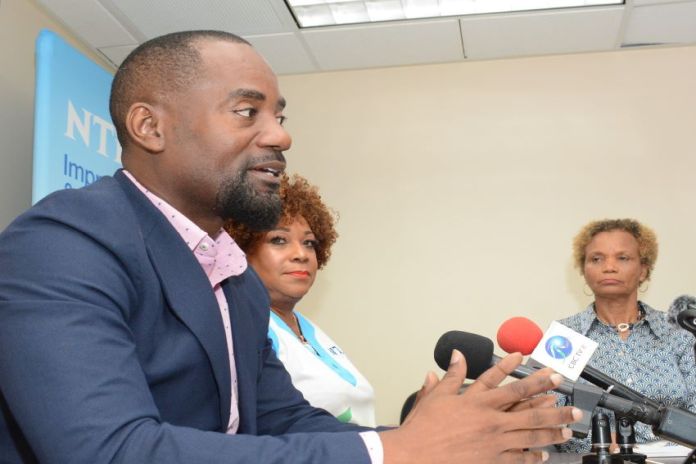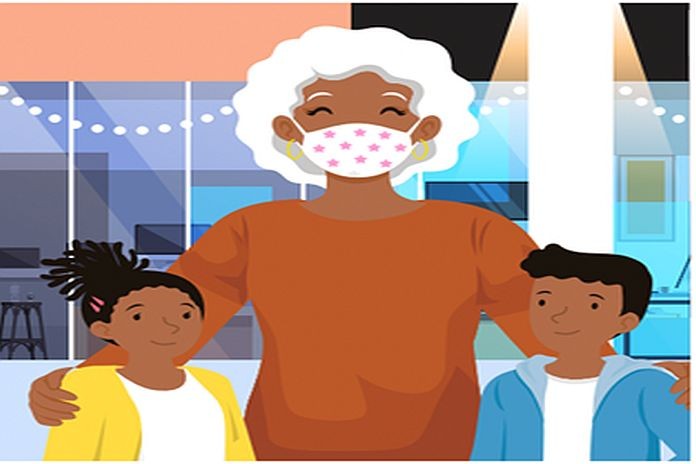BRIDGETOWN, Barbados – The ministry of health and wellness advises that there has been an increase in the detected cases of COVID-19 over the last four weeks at the Geriatric Hospital, Beckles Road, and the Psychiatric Hospital, Black Rock, both in St Michael.
However, the ministry has been able to contain the transmission of the virus at these two institutions. At the Geriatric Hospital, only two patients are in isolation, down from a maximum of 18 in one day, while at the Psychiatric Hospital, three persons remain in isolation, from a maximum of 10.
Regrettably, three elderly patients, all wards of the Geriatric Hospital with co-morbidities succumbed to the viral illness.
The ministry of health and wellness is reminding the public that in order to prevent the transmission of any type of respiratory illness, persons should wash their hands frequently and wear masks when attending to elderly or vulnerable individuals.

Meanwhile, ‘Care Deficit’ is of concern to minister of people empowerment and elder affairs, Kirk Humphrey, that families are not placing enough emphasis on the care of their elderly and others who may have a disability or been injured because of an accident or gun violence, reports Joy – Ann Gill.
Minister Humphrey expressed this recently while witnessing the signing of a memorandum of understanding between the National Assistance Board and the National Transformation Initiative, at the Warren’s Office Complex, regarding a training initiative for those in the Home Help programme and Companions in the Community of Elder Care.
Pointing out that his biggest concern was that traditional mechanisms of care – family and extended family or people just caring within the family – were eroding, Humphrey said:
“As those things begin to erode, there is going to be a need for us in the state to play a different role and that changing role of the state now has to become part of the conversation. I think we built a society with the assumption that the family would carry a significant part of the burden and what you are seeing every day, in significant manifestations, is that the family is no longer playing that role.”
The ministry sees this in the Elder Care Programme, with persons who are abandoned at the Queen Elizabeth Hospital, and more recently, not just older persons but younger persons, who would have been shot or in an accident.
“People are just not coming forward to care for other persons,” he remarked, lamenting that the abandonment also extends to other persons, including those who have disabilities.
Querying what could be done to resolve the issue, he opined: “I think on one hand, we have to do what we are doing in the ministry, which is to expose our staff to higher levels of training. so that when they engage with other people in the public, people sense a degree of compassion. And there’s not everything you can teach but I do believe there are some things we can convey.
“I think we also have to be more intentional in our hiring practices because there are a number of people who come forward with eight million qualifications and present themselves for a job but what is the bigger requirement is that they [should] care about other people. So, we have to find a way when we are doing our hiring to make sure that people who come into this space are people who care about other people.
“So, I think we have to start asking different questions beyond: ‘What is your degree?’; ‘Did you get honours?’, to: ‘Tell me what you have done, growing up, for other persons’; ‘Are you involved in the Arts?’…. The biggest deficit this country has to fix is a care deficit. The biggest deficit is not a fiscal deficit. It is a care deficit. It is going to be the State, but it also has to be the church, the communities, the private sector, the trade unions, everybody, if we are going to resolve what is before us.”
Minister Humphrey noted that Barbados is an aged society with one in every five persons over 65 and one in every four over 60. Pointing out the serious nature of this, he stressed:
“If the population is getting older and we are caring less, you can understand what is going to happen to this country in the next few years. And, if the people who also need care are not being cared for well, then they have a double problem.”
While also acknowledging that NTI’s training was going to be a significant part of it, he noted there was a need for parenting programmes, community-based programmes, and the involvement of everyone.





